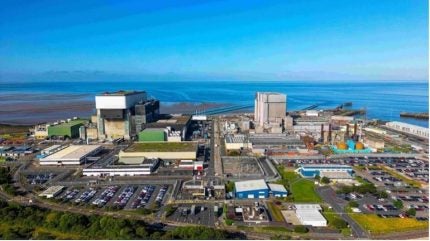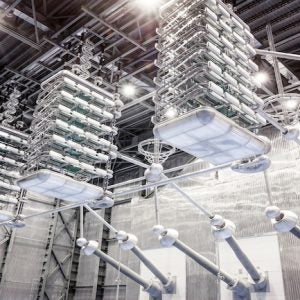
EDF has confirmed its plan to extend by up to two years the lives of four UK AGR (Advanced Gas Cooled Reactor) nuclear power stations totalling 4.6 GW. It means Heysham 2 in Lancashire and Torness in East Lothian will continue operating until March 2030, while Heysham 1, and Hartlepool on Teesside, will produce power until March 2027, an extension of one year.
As well as bolstering energy security, the decision supports plans for the rapid expansion of renewables by helping to maintain grid stability. It should also help limit the UK’s dependence on imported gas, with a further 45 TWh of output displacing around 9.3 bn cubic metres of gas over the extended lifetimes. That is the equivalent of 62 LNG tankers, more than 20% of 2023’s LNG imports.
Mark Hartley, Managing Director of EDF’s Nuclear Operations business, said: “When EDF acquired these stations in 2009 they were all due to end generation by early 2023 which would have left the UK with just one generating nuclear station at Sizewell B [but] around £8 bn of investment since 2009 has seen several life extensions for these stations and much higher output than was predicted.” EDF has invested more than £8 bn in the UK’s nuclear fleet since 2009, and has re-started the country’s civil nuclear programme at Hinkley Point C and Sizewell C.
The decision, taken after a rigorous review process over the past seven months, follows the recent publication of the Clean Power 2030 report by the energy system operator, NESO, which outlined the importance of AGR life extension in reaching the UK Government’s clean power goals.
EDF will invest a further £1.3 billion in the five generating stations over the next three years (2025-27). So far, the nuclear fleet has generated over 240 TWh since 2008 more electricity than was anticipated.
The dates given above are forecasts – the precise closure dates will be determined by the results of regular graphite inspections and how those results are interpreted within EDF and by the independent regulator, the Office for Nuclear Regulation. End of generation dates are kept under review and revised based on the best information available at the time.






